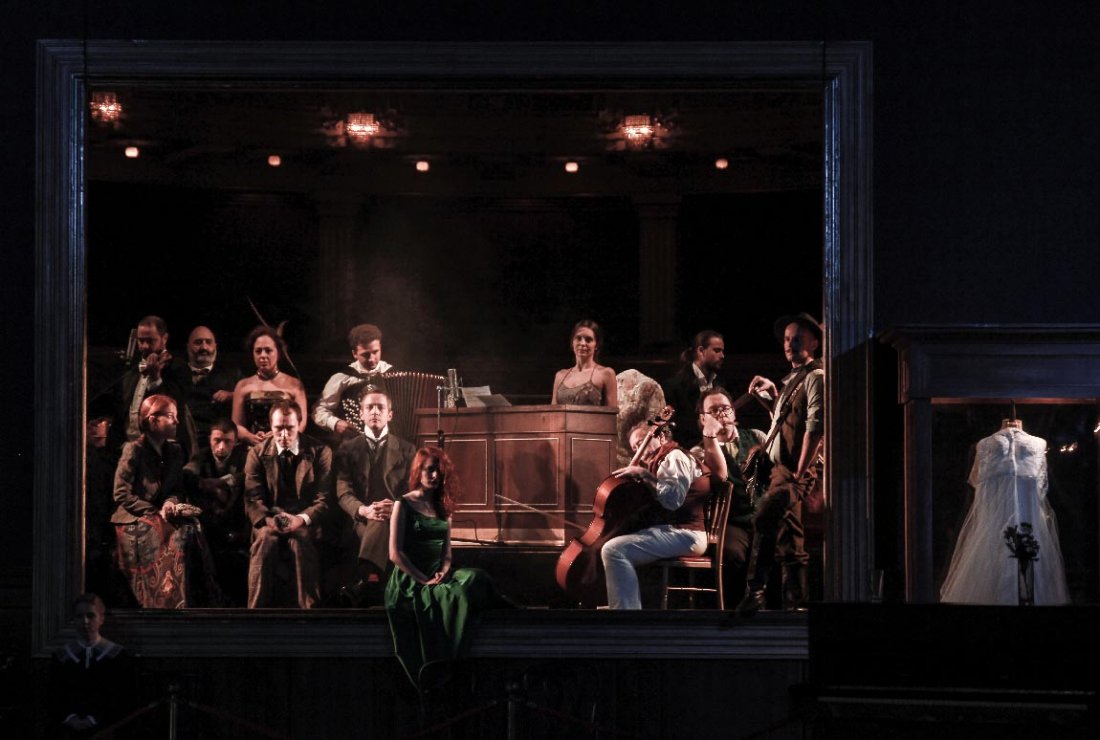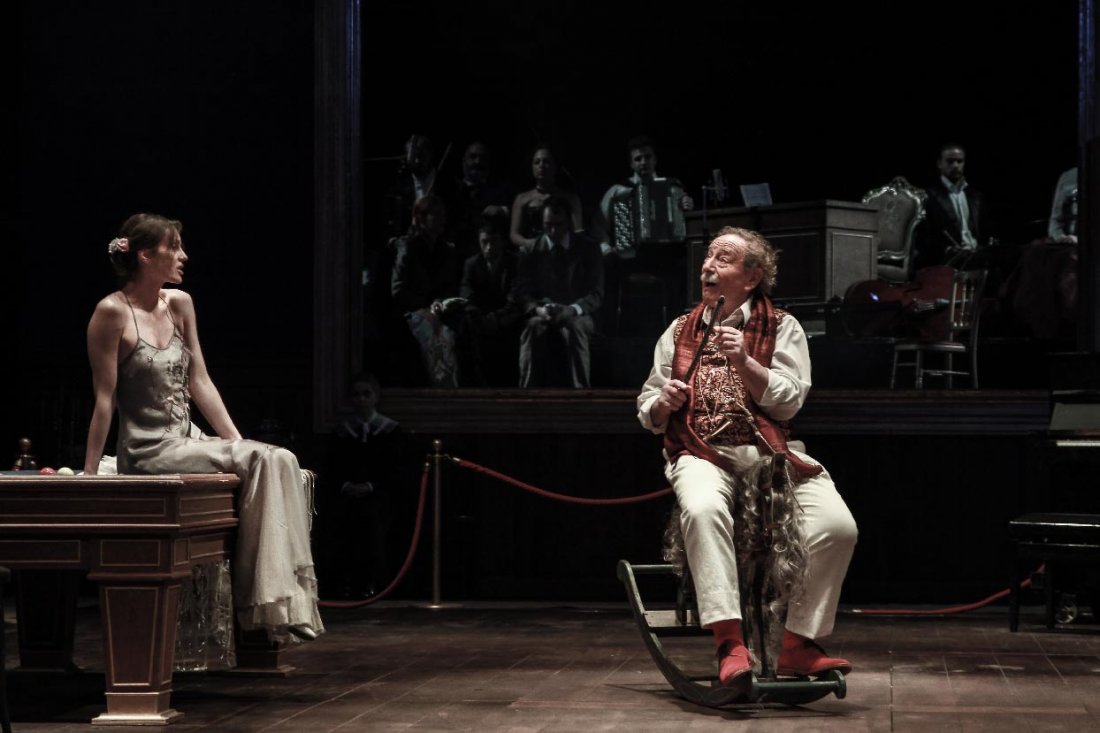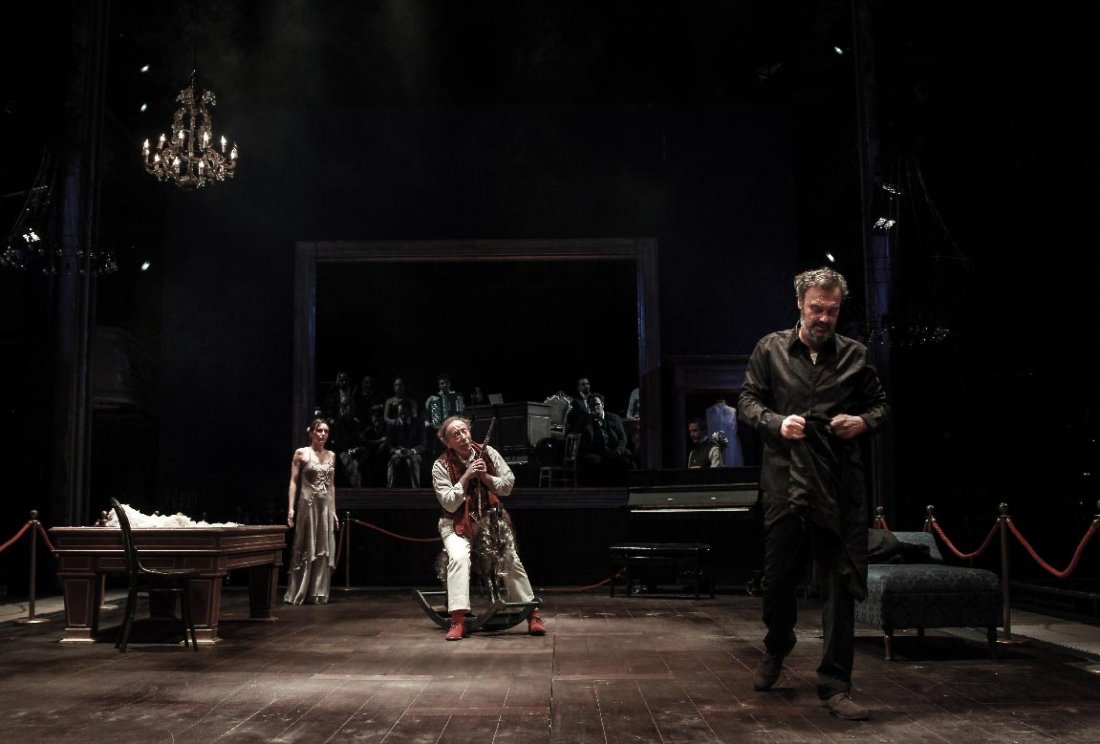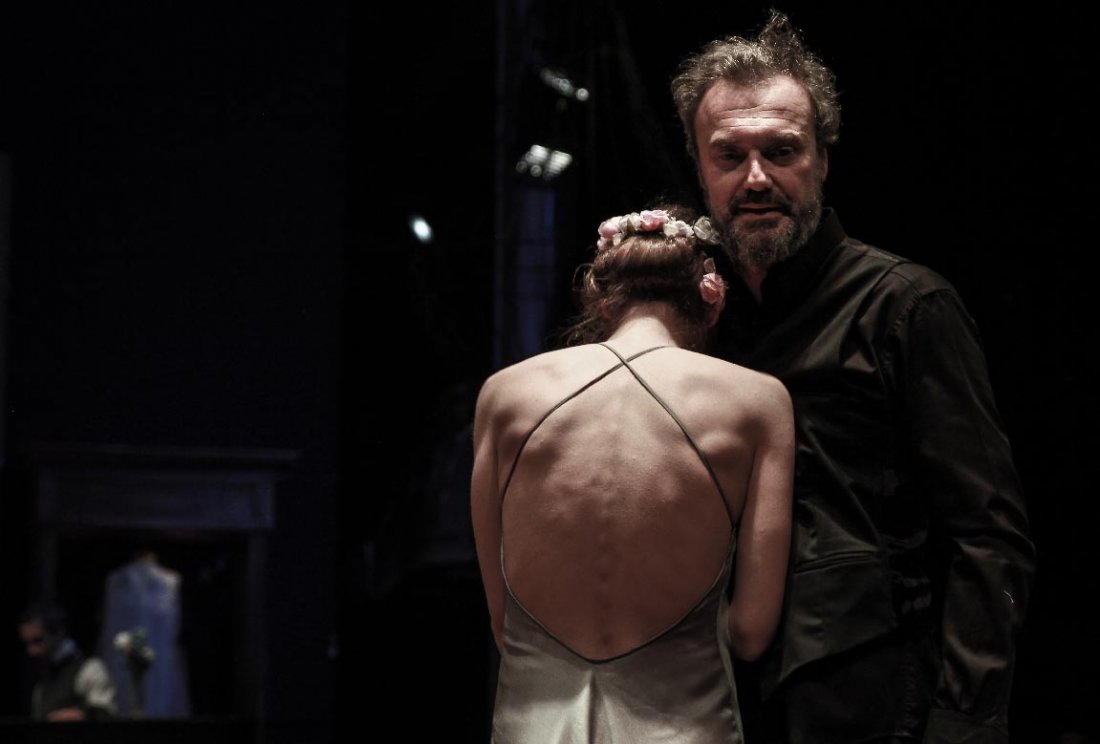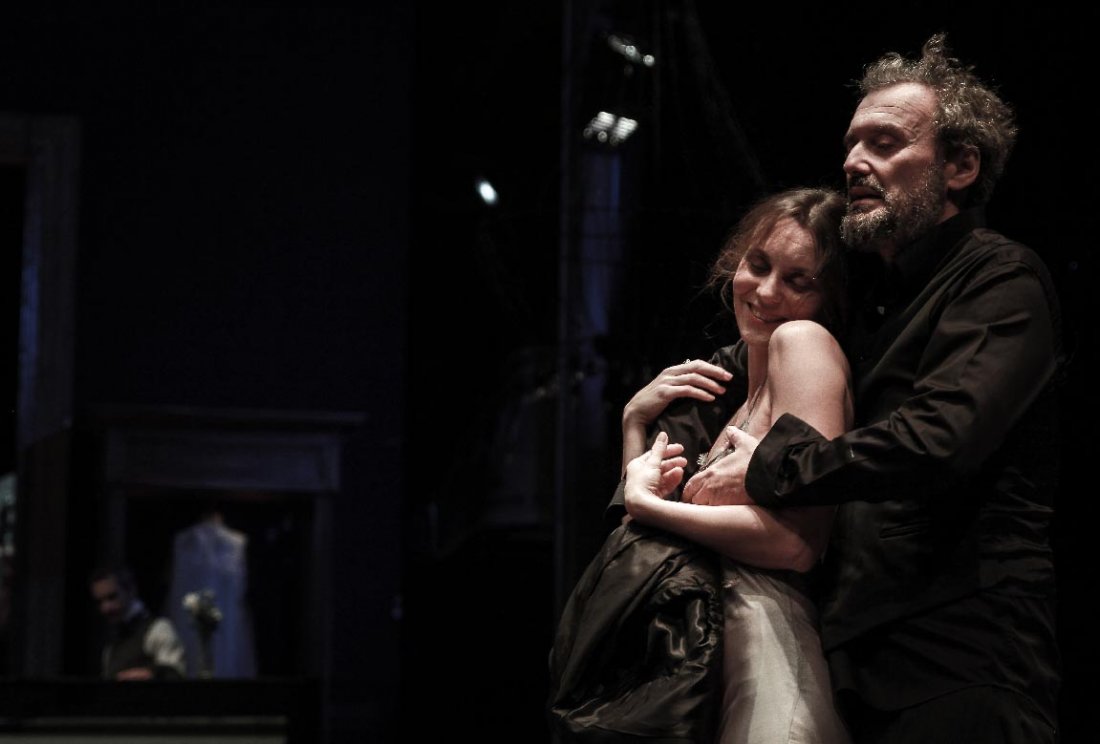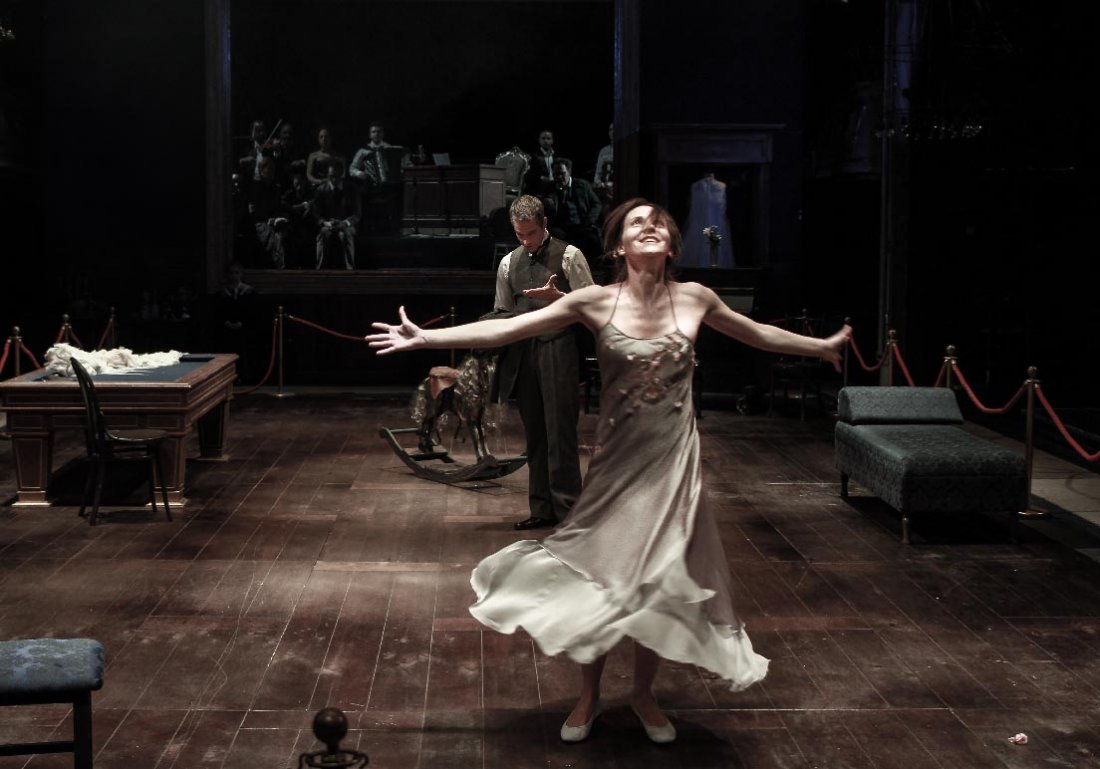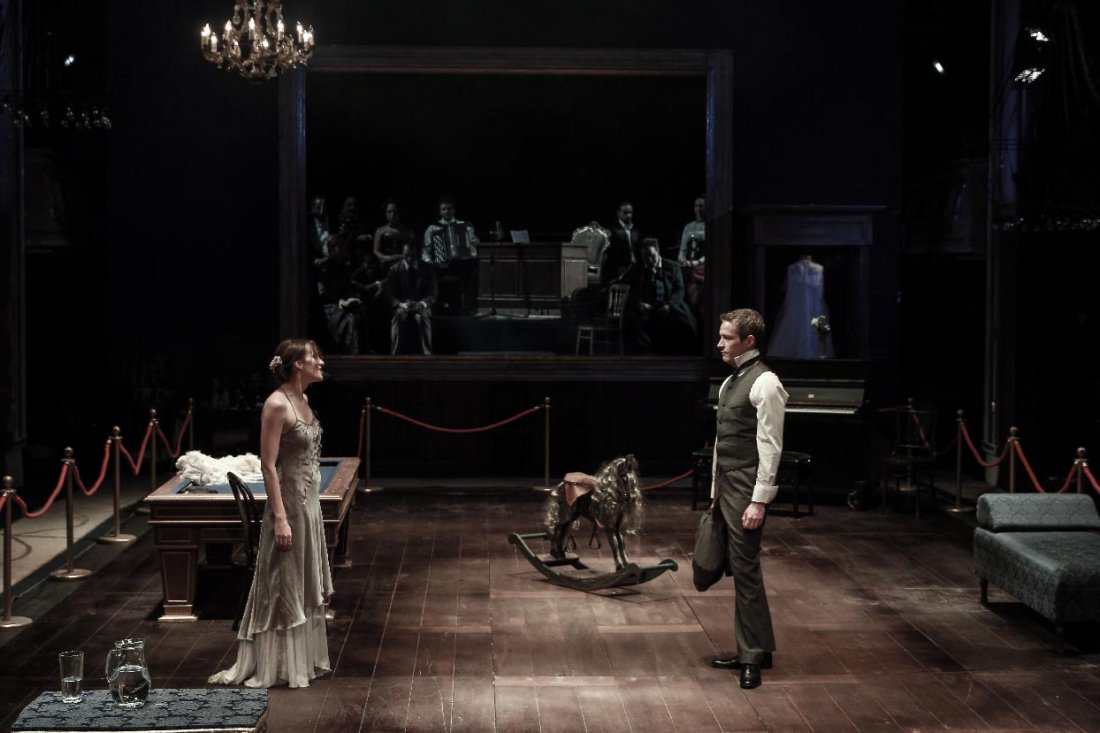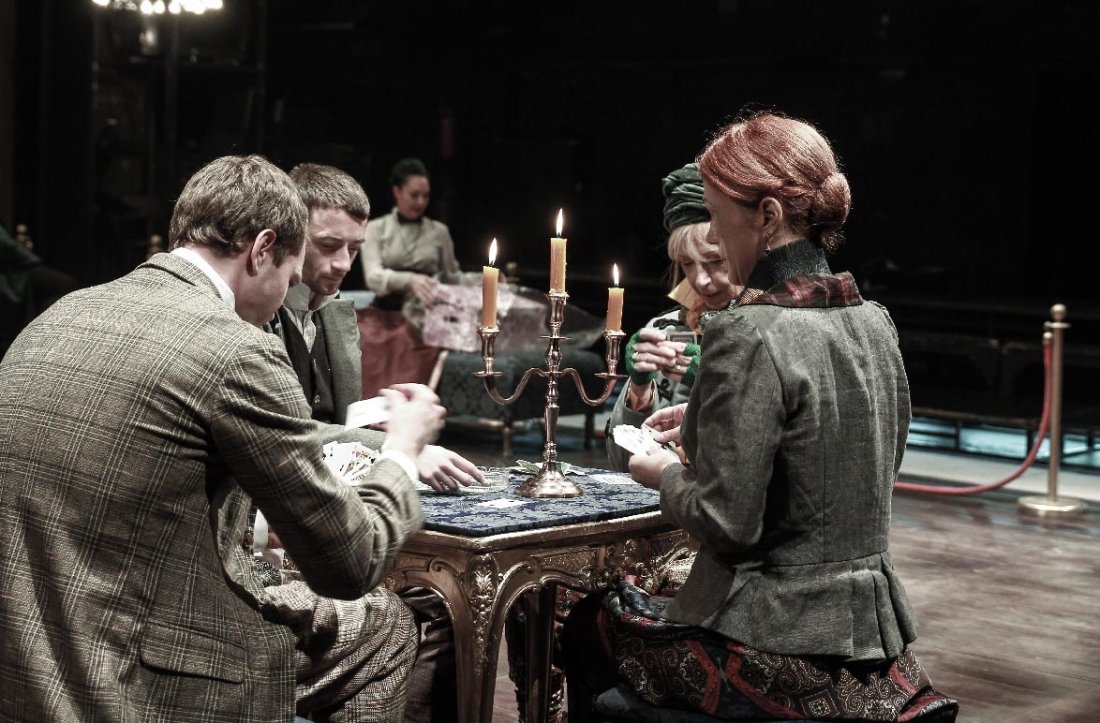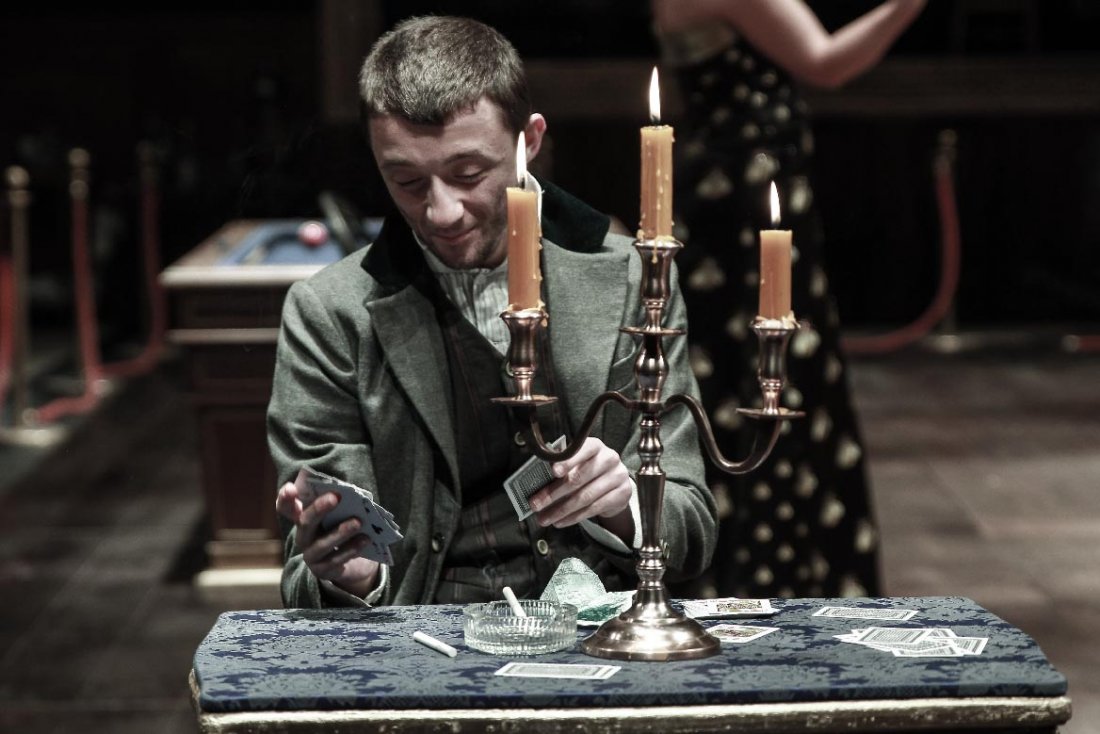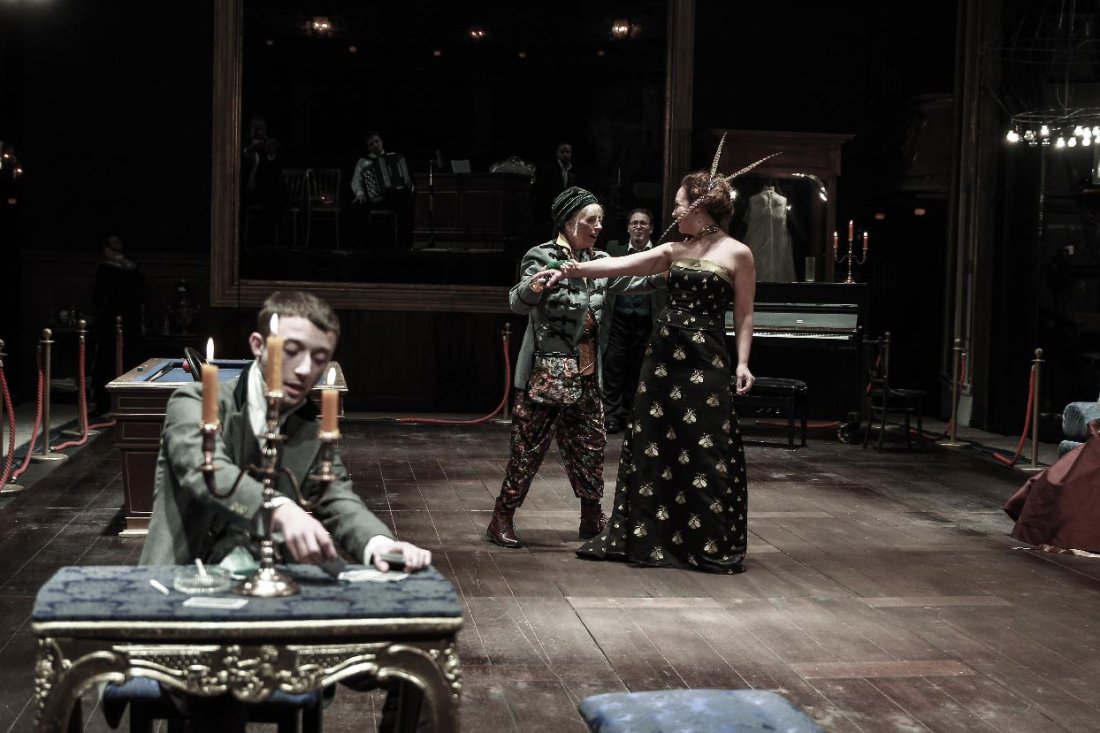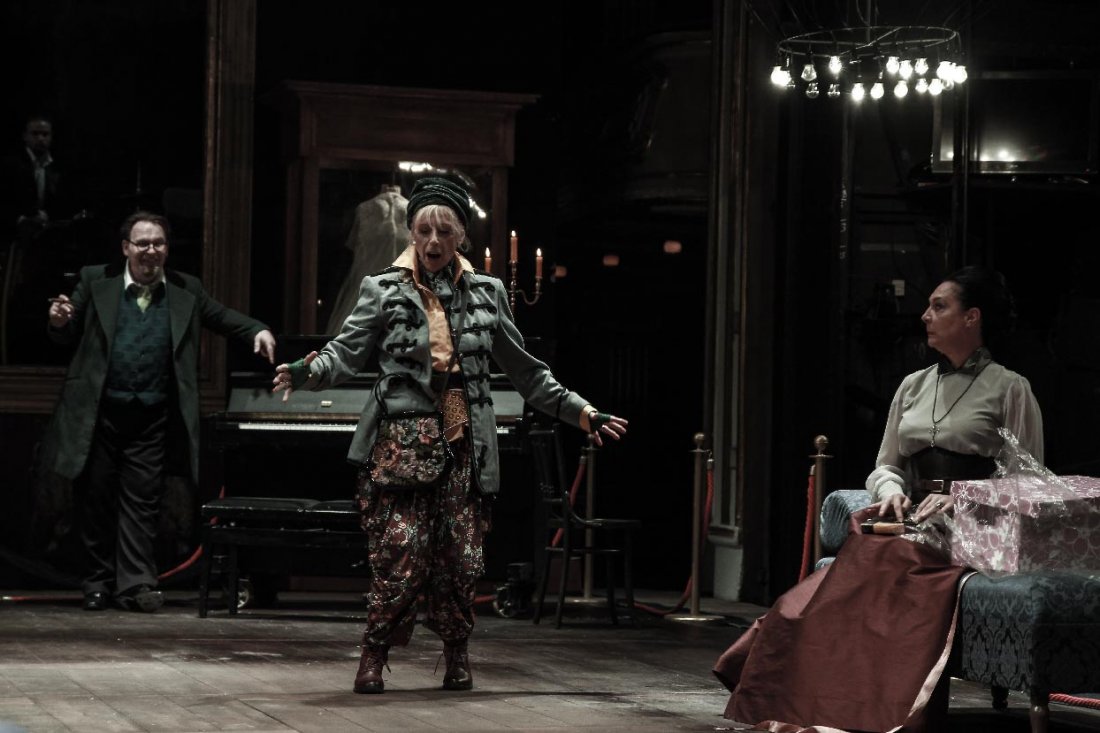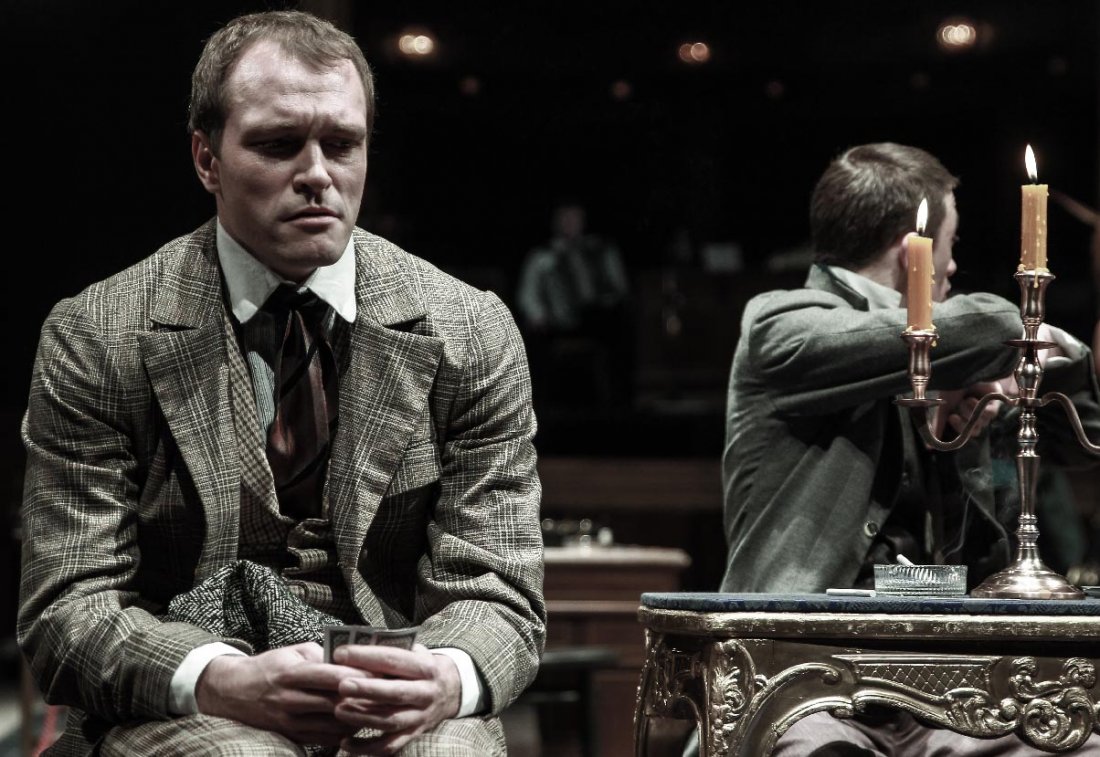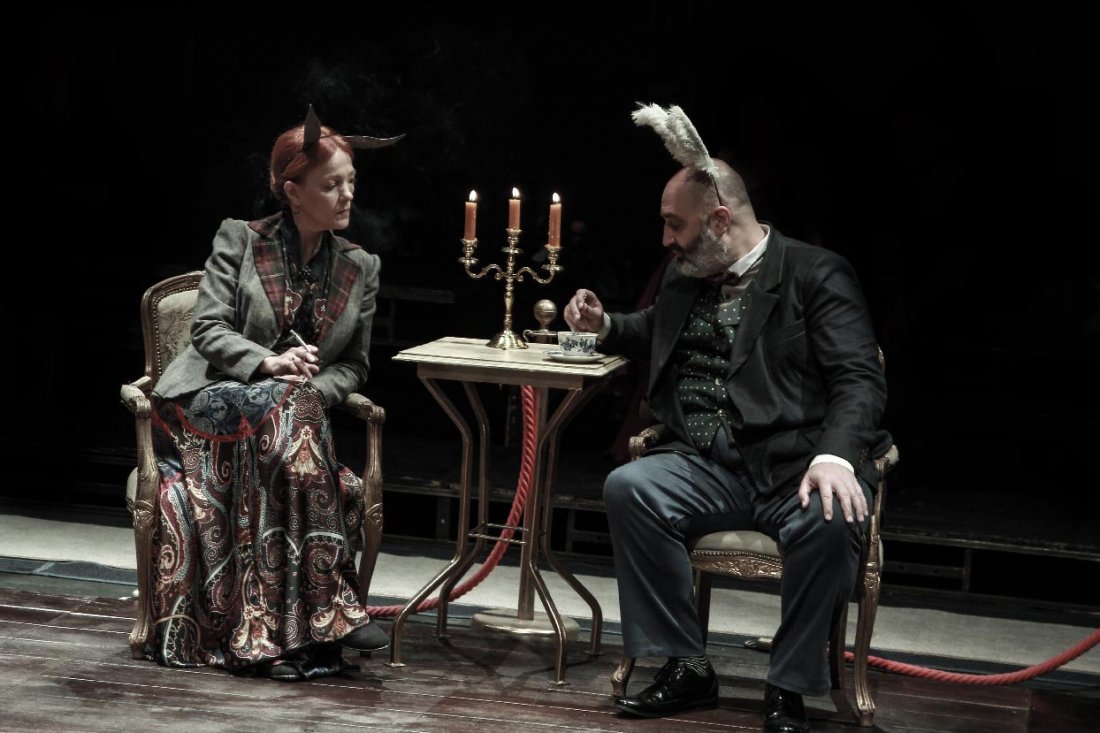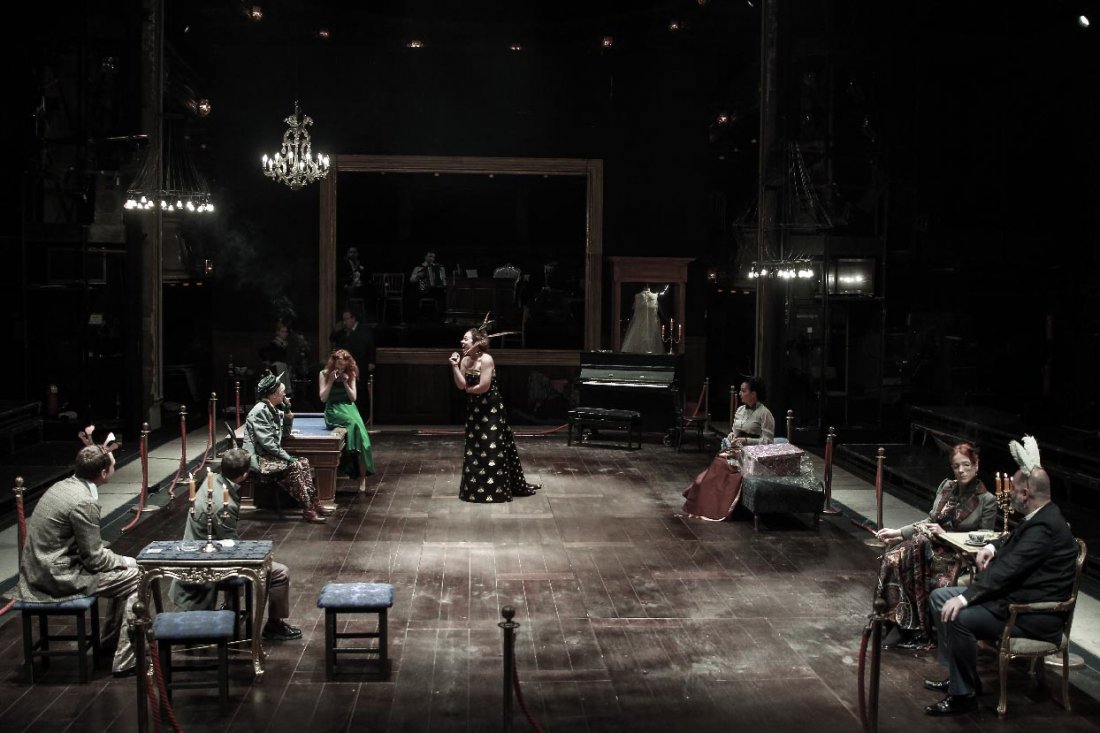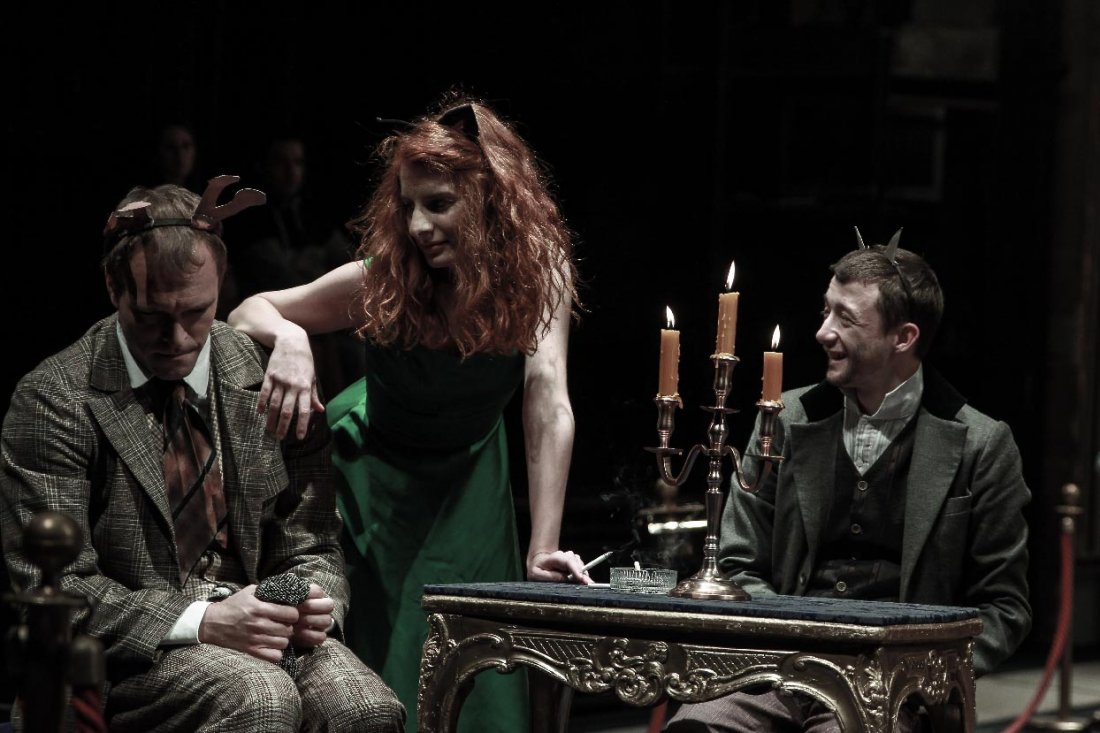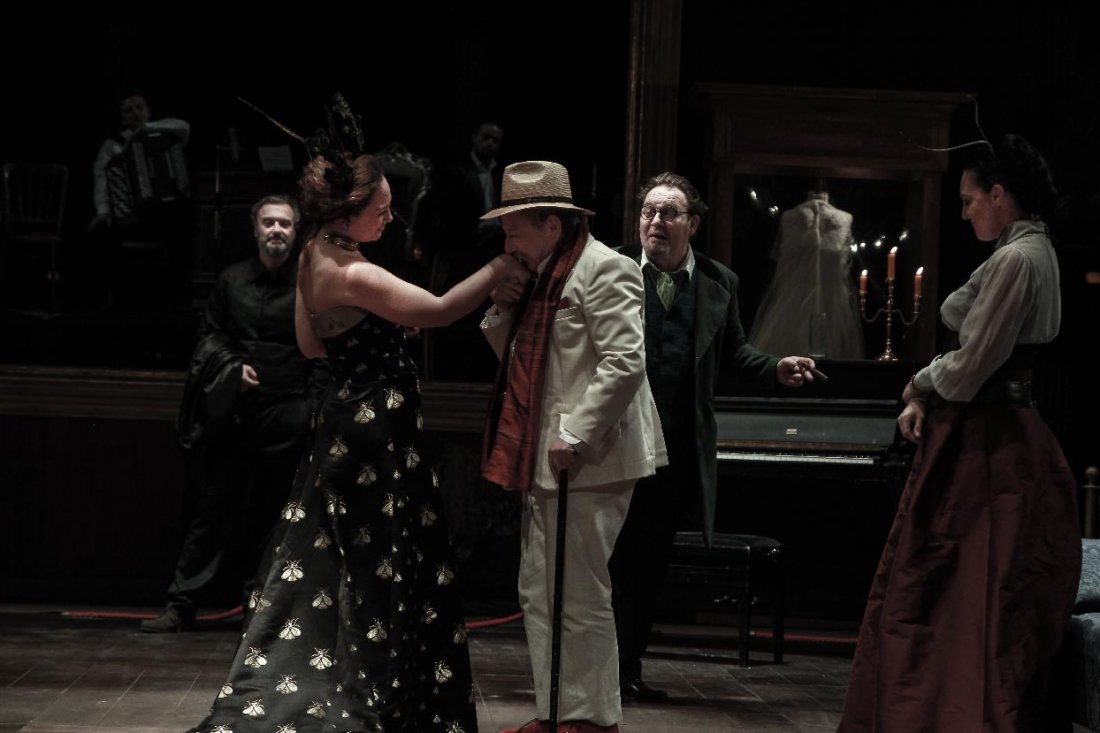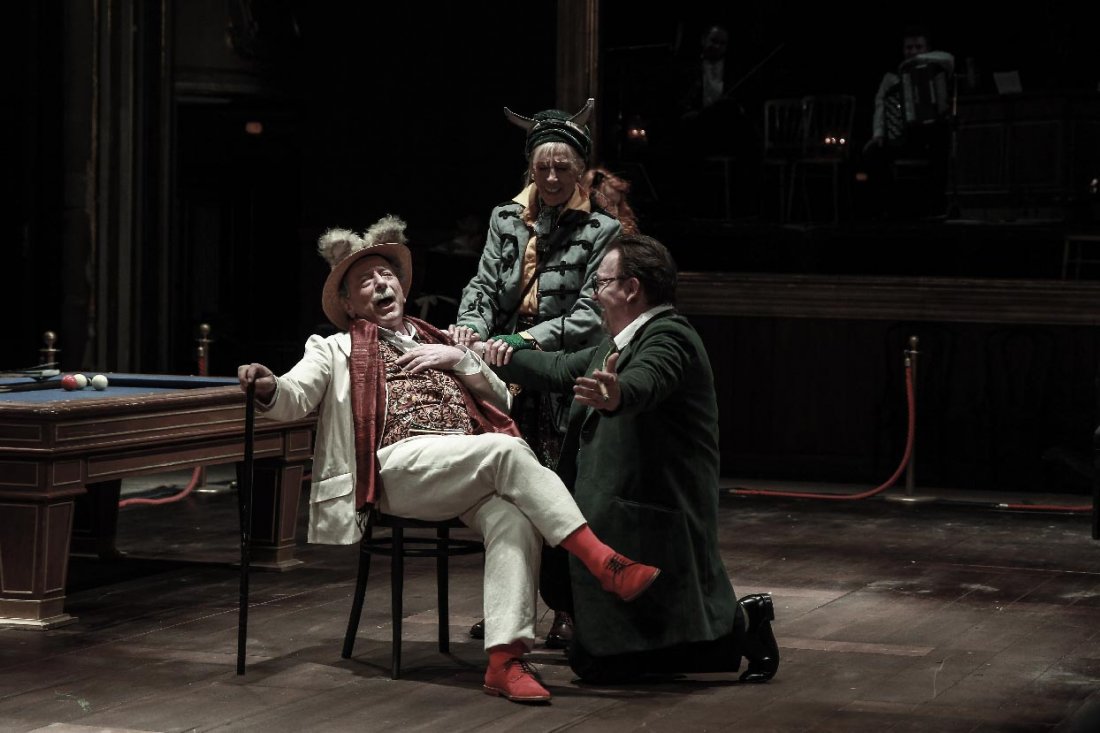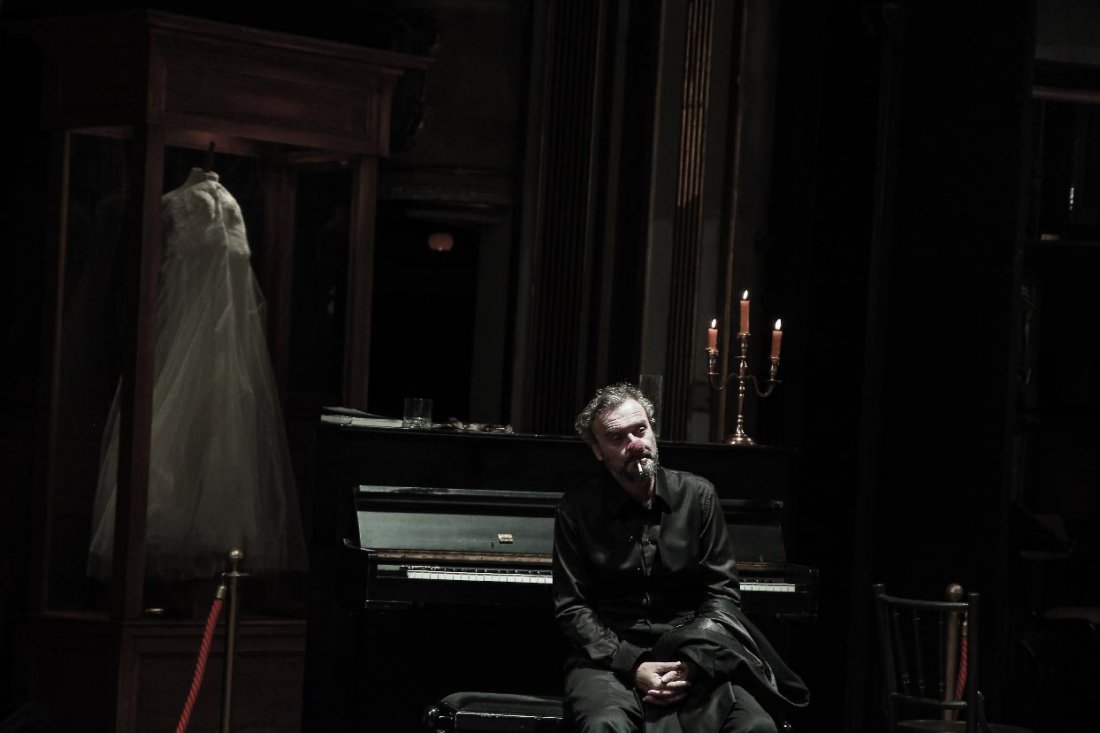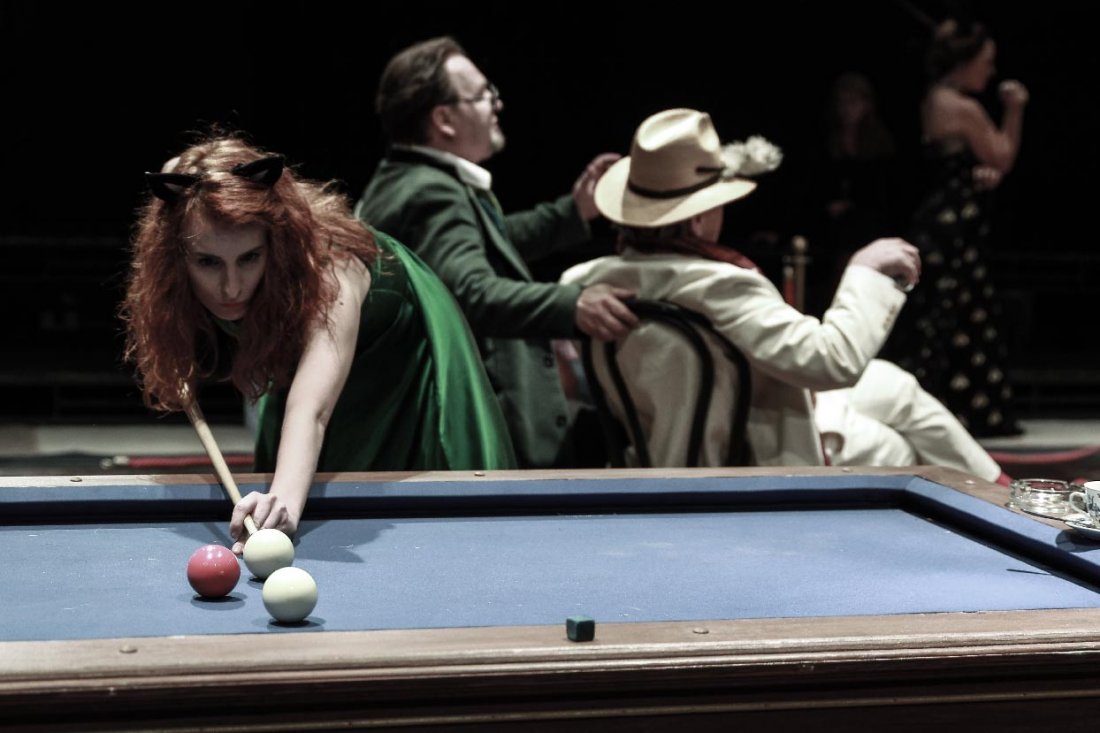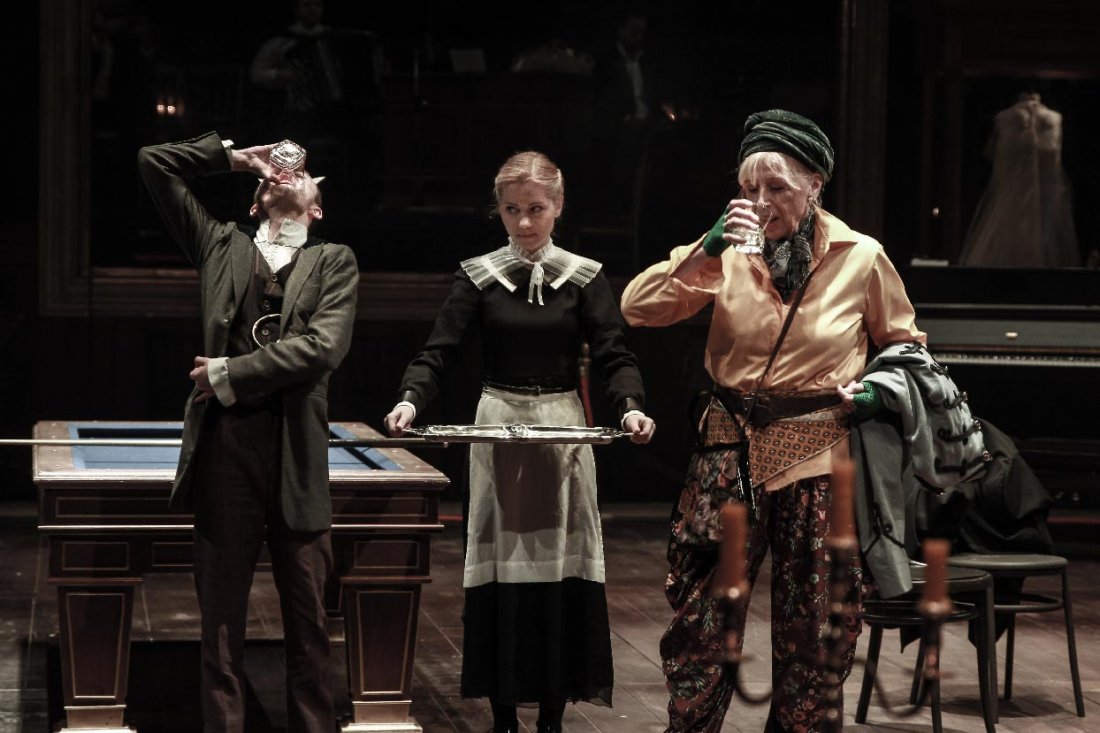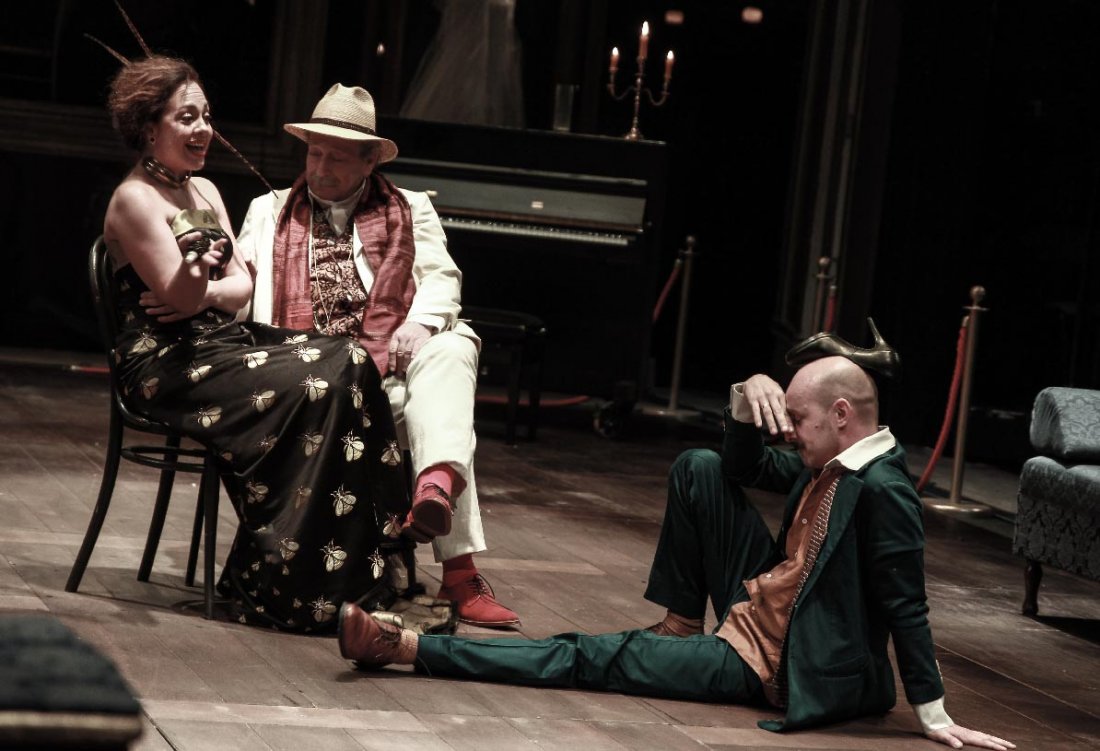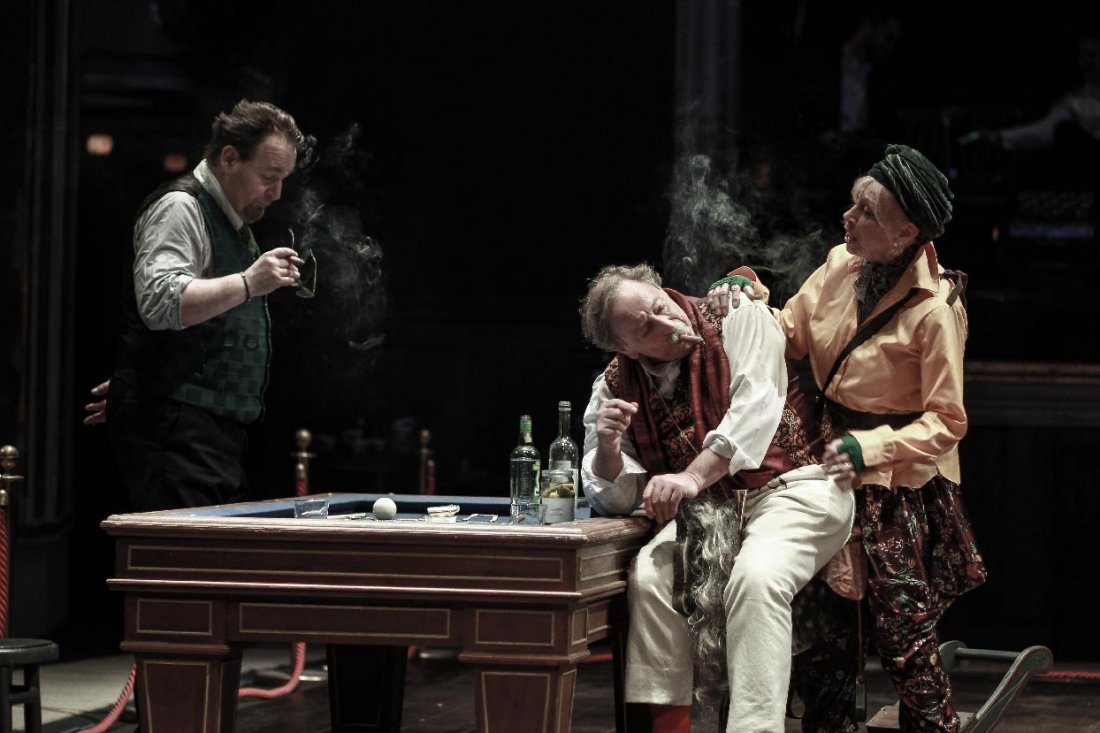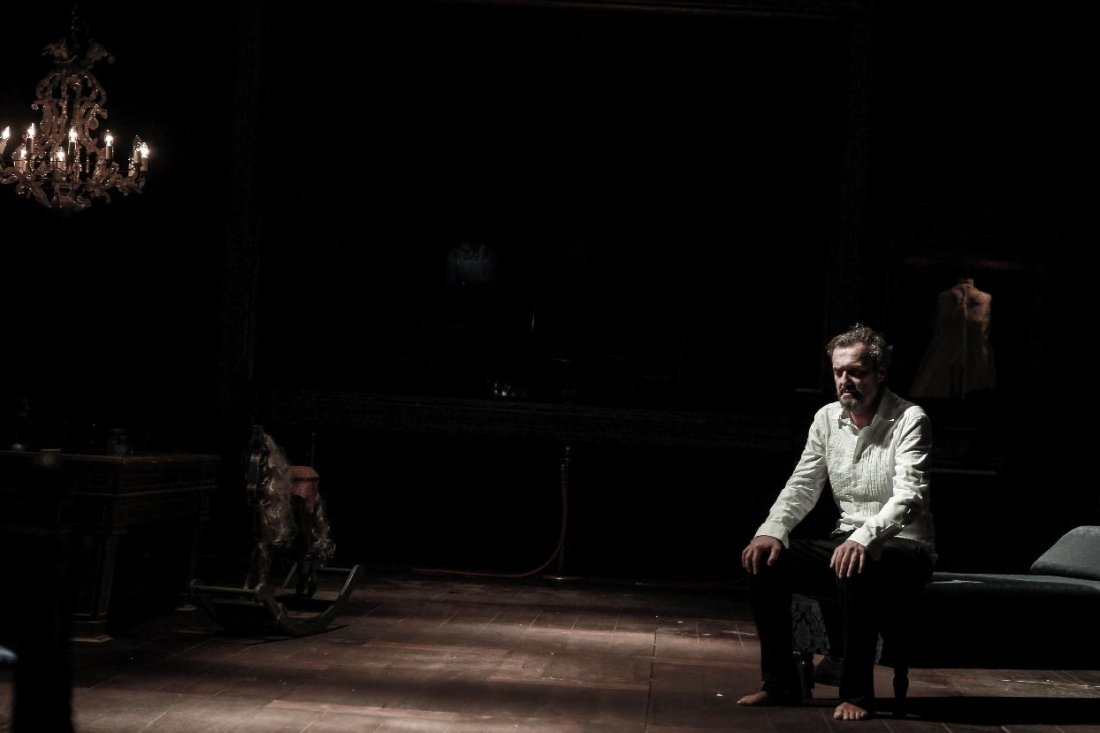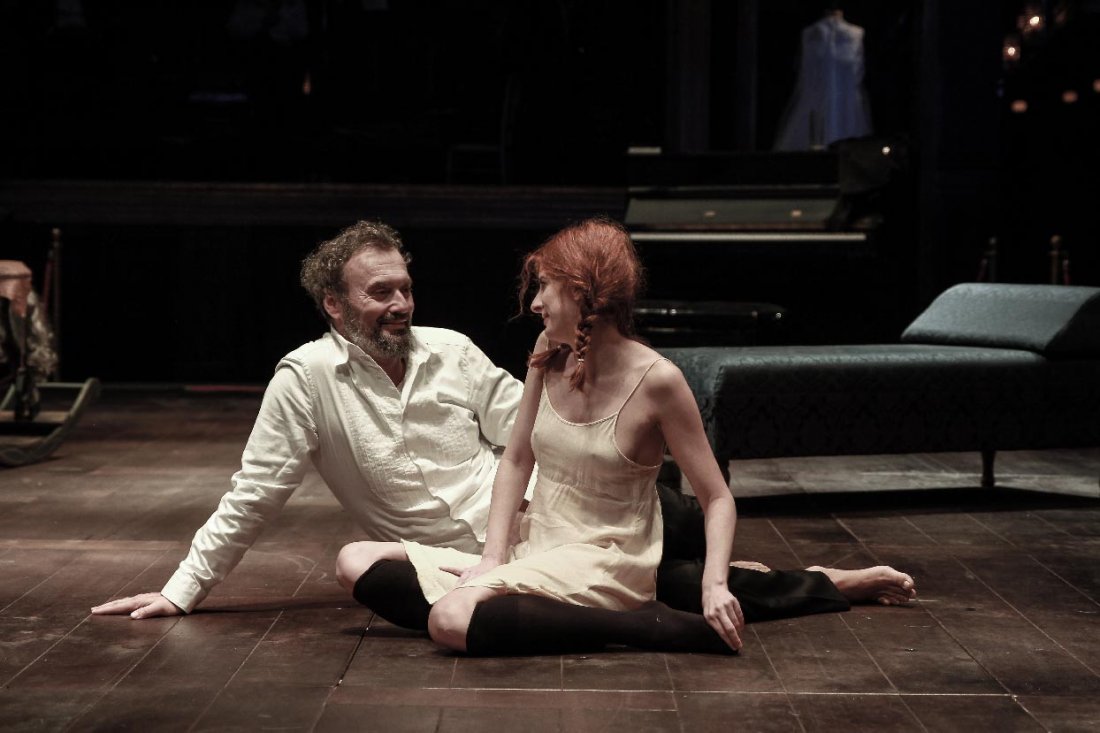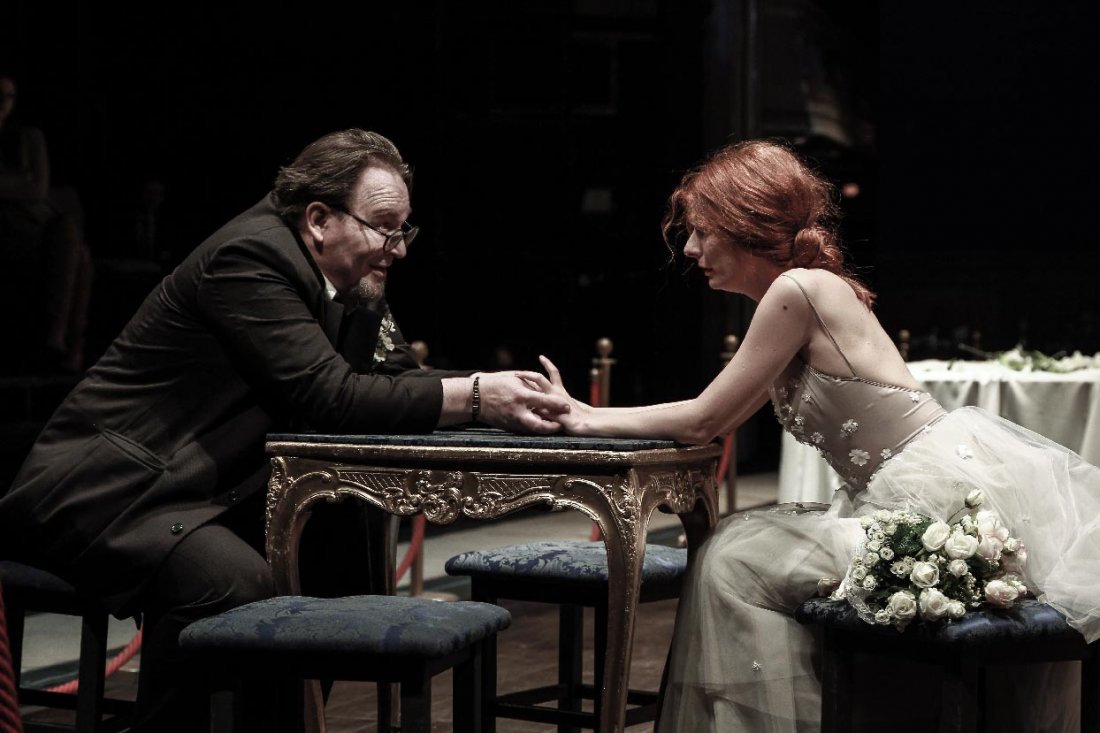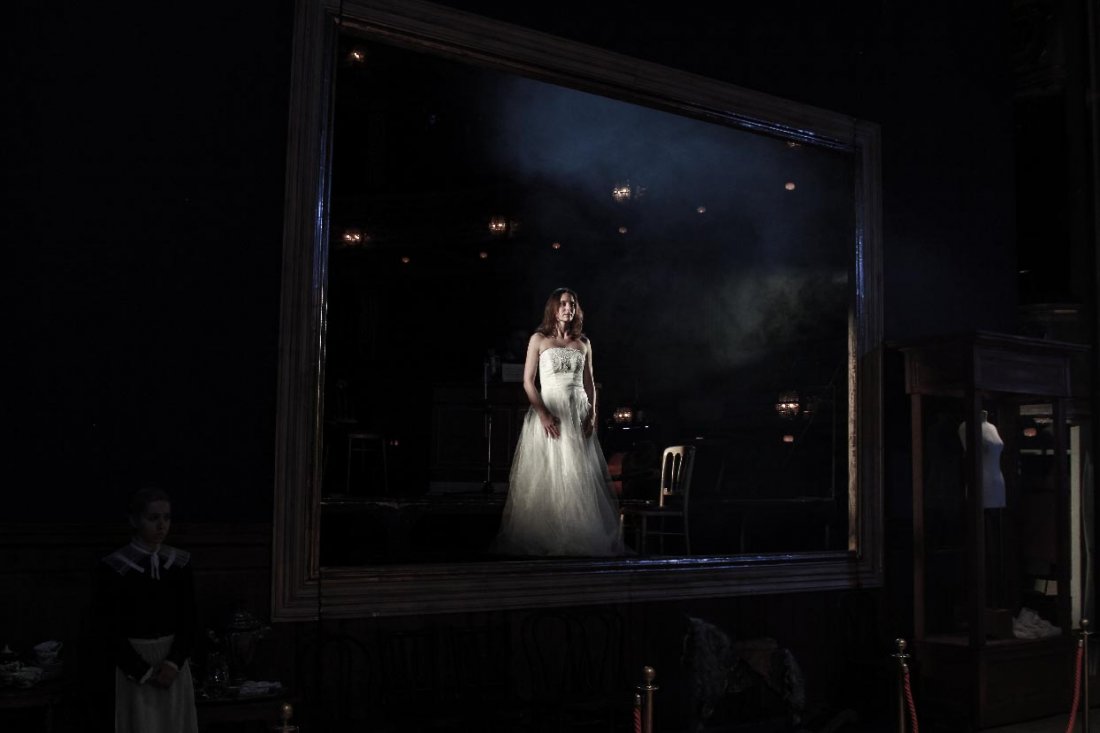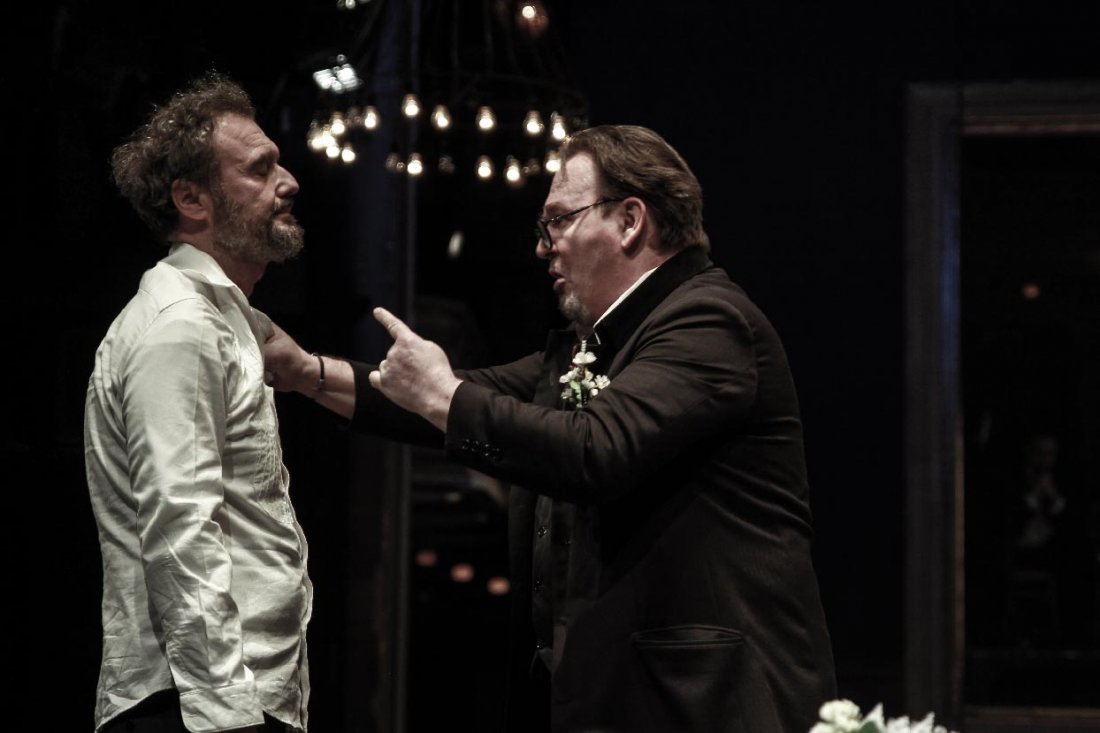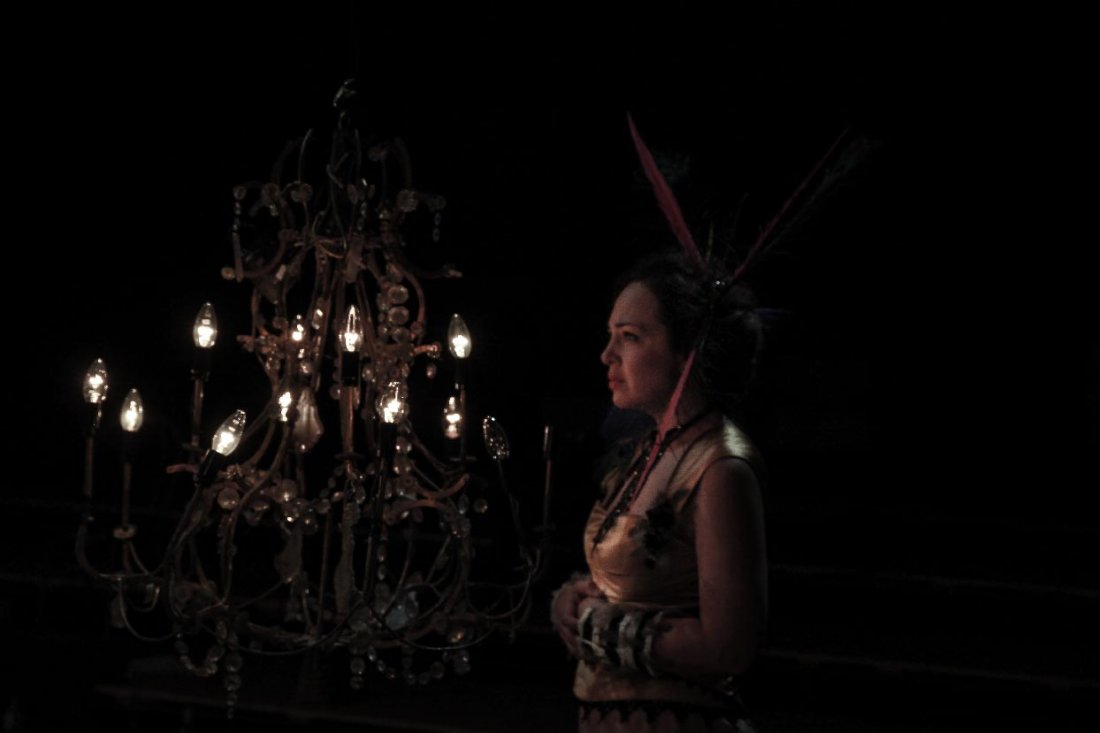IVANOV
drama by A. P. Chekov
About Performance
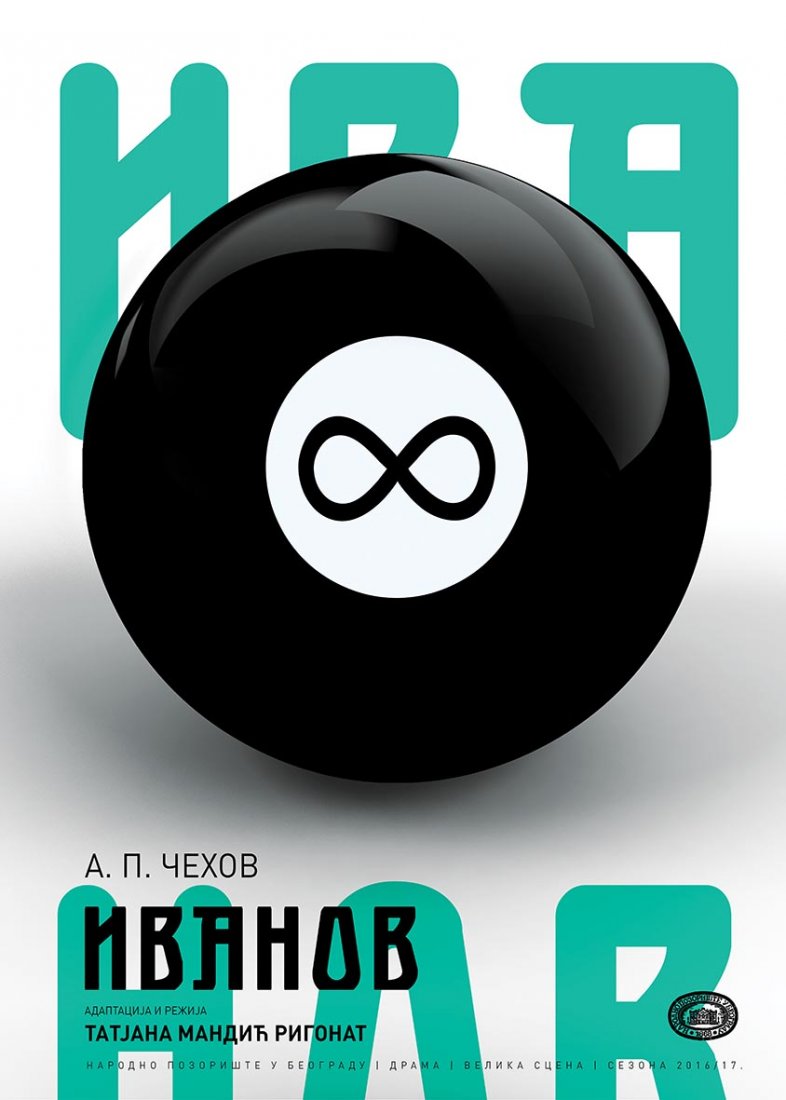
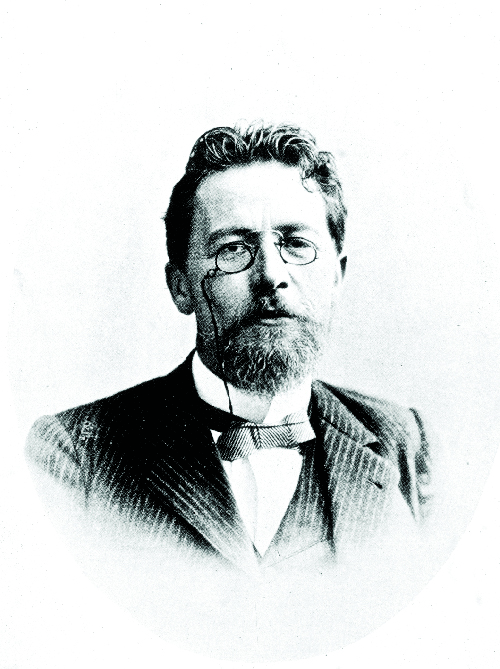 ANTON PAVLOVICH CHEKHOV (1860–1904)
ANTON PAVLOVICH CHEKHOV (1860–1904)
Who was Chekhov? Was he a prodigious storyteller that wrote plays, or a prodigious playwright that wrote stories, or a prodigious storyteller and a playwright at the same time? These are not exclusively academic questions, although they may seem to be. We still consider Chekhov a great storyteller who wrote several outstanding plays; the opinion that he was a great playwright, who wrote stories only because he needed the money and because he could not hope to see his plays produced in theatre, is less common. The fact is that Chekhov wrote twenty-six plays (both one-act and full-length plays), when all his plays are put together – even the ones which he only considered and had not written, and the ones he destroyed, and the ones that got lost. However, such questions have always been asked because we do not know precisely what Chekhov’s contribution to modern drama was. Doubtlessly, Chekhov was an ingenious short story writer, however Pirandello was also an ingenious short story writer – and he wrote several novels as well – and yet, we do not consider him a storyteller and a novelist who wrote plays. This is because Pirandello’s contribution to modern theatre is visible at first glance: six characters that appear on stage doubtlessly represent modern theatre. Chekhov’s contribution is notably less visible. His plays have been placed among naturalistic ones, we consider them lyrical plays about emotional life, plays of endurance, plays in which ‘nothing happens’… and all of this, actually, indicates that we are still undecided about the true nature of Chekhov’s plays and their place in history of modern theatre. (...)
Therefore, we could state that, with Chekhov, realistic drama ceases being only a picture of everyday life with all its variations, and becomes a dramatic form that leads us towards a manner of observing a person that we have been used to see in plays in the time of Sophocles and in the time of Shakespeare. As a rule, comparing writers is usually neither the best nor the most equitable analytical procedure, however comparing Chekhov to Ibsen is again inevitable. Ibsen wanted to uplift events from everyday life to tragic universality before they become drowned in triviality; Chekhov, on the other hand, places events from everyday life into triviality of such life and elevates them up to high tragic plane, in a gradual process and by using the same triviality. But, has Chekhov written a modern tragedy, ‘a tragedy in a modern suit’? The question may seem scholastic, while the problem of modern tragedy – just as a problem of square surface of a circle – represents a problem, which is more a diversion than a real problem; however, when Realism is compared to great classical drama then, without a doubt, Chekhov comes to mind. Because, out of real and recognisable image of life we can observe around us, Chekhov’s play gradually rises toward discovery of basic forces that influence life. There is a wide and comprehensive vision of human destiny, which makes the amorphous ‘excerpt from life’ a great dramatic form that speaks about life in the same manner as Greek tragedy and Shakespearean drama do.
(Ј. Христић, Chekhov, a Playwright, 1981)
ABOUT THE PLAY
Ivanov was first Chekhov’s play that was staged in a theatre. The opening performance in the Korsh Theatre in 1887, was assessed a “reasonable success”, but the author was left with a sense of exhaustion and frustration (from a letter to the playwright’s brother). Immediately after the premiere, Chekhov started making alterations to the play and made several versions, but the biggest change was in the sphere of genre; it changed from comedy into drama for the production in the Alexandrinsky Theatre. Upon that, he continued working on the play and prepared it for publishing in The Northern Herald (1887) and in magazine The Plays (1899). Success of the play may be explained by the fact that it deals with a problem that troubled Russian intellectuals in the 1890s. Chekhov introduced a man who, exhausted with lethargy of Russian life, keeps running into obstacles impossible to overcome them, like inertness, slowness, indifference, which destroy idealism and annihilate every sense of pleasure. Ivanov’s life has turned pointless in the petrified structure of Russian society at the time. Therefore, it is not surprising that the author and the play have been accepted with enthusiasm (J. Hristić). While working on Ivanov, Chekhov wrote, “Heroes in stories and novels used to be in their twenties (Pechorin, Onegin), but now they have to be older than thirty or forty years of age. The same thing will happen to heroines.” “This time of life is fatal for Chekhov’s heroes: it represents the time when hope turns into disappointment, sense of freedom turns into a sense of captivity, a number of anticipated possibilities turns into a single, destined to fail, path to stay on until they die” (B. I. Zingerman). “Why are we worn out?” Chekhov wonders. “Why do we, who start out so passionate, brave, noble, believing, become totally bankrupt by the age of thirty or thirty-five? Why is it that one is extinguished by consumption, another puts a bullet in his head, a third seeks oblivion in vodka, cards, a fourth, in order to stifle fear and anguish, cynically tramples underfoot the portrait of his pure, beautiful youth? Why is it that, once fallen, we do not try to rise, and, having lost one thing, we do not seek another? Why is it so? The thief, hanging on the cross, could bring back the joy of life and the courage of confident hope, though perhaps he had no more than an hour to live.” A lot has been written about Ivanov until this day. And, it has always inspired numerous and conflicting opinions. However, the play never received unified interpretation and understanding neither by the critics, nor in literature, nor in theatrical interpretations. “There have never been a unified opinion until this day about what really happens in the play, what it is about, or what the main character is like” (D. Putchenkov). Character of Ivanov has not been defined clearly. We only have several versions of his personality, out of which none can be taken as final. Traditional drama conflict between the hero and circumstances around him has been replaced by Chekhov with a new principle where (since the hero has a conflict within himself) – conflict exists between the hero’s inner world and his actual behaviour. Therefore, the character of Ivanov, according to J. Hristić, represents “an orgy of what Anglo-Saxon critics call ‘points of view’.” Ivanov’s character inspires endless discussions, confrontations and interpretations in Russian theatre and literature reviews. Especially Russian liberal intellectuals have displayed a harsh reaction to the character. At the time when literature was expected to reveal great truths, which would help change life over night – Chekhov did not give straightforward answers. Quite the contrary, because “although Chekhov showed that he had not been blind for apathy and desolation of Russian life at the time, he did not give clear answers to obvious issues of his time” (J. Hristić). It seems that Chekhov did not wish to be of assistance and reveal his opinion on critics’ heated discussions regarding Ivanov. His response to criticism was simply, “Men, like Ivanov, do not solve problems, they collapse under their weight”. Although Chekhov stated that his intention was to portray a, so-called, average person (a concept dealt by Russian literature in the 1880’s, especially by Tolstoy and Saltykov-Shchedrin; V. B. Kataev), Ivanov became compared to Hamlet quite early on, although Ivanov himself rejects such intentions in one of his monologues. A critic, T. K. Shakh-Azizova wrote, “when compared to Hamlet, who remains a hero despite of all his conflicts and disappointment, Ivanov seems like a sum of different traits of depressed people, ranging from the extremes of tragedy to the extremes of comedy (…) Ivanov is a strange man who never wanted to become Hamlet, and yet, he became a Russian Hamlet of the 80’s, together with all the additions time brought to his character”. As much as the critics try to define the character of Ivanov (even in a G. Brenner’s attempt to treat the play as a psychodrama), it always seems to remain with “a locked Chekhovian secret that provokes another attempt to define the character” (A. P. Skaftymov); or, as M. Bakhtin would say, “an inexplicable and insoluble remnants of humanity”.
Prepared by Slavko Milanović
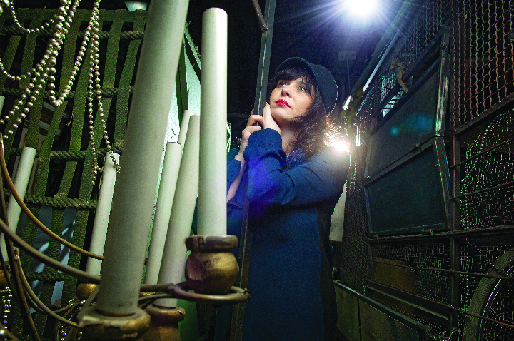 TANЈA MANDIĆ RIGONAT
TANЈA MANDIĆ RIGONAT
Tanja graduated in Theatre and Radio Directing at the Faculty of Dramatic Arts in Belgrade, from the class of Professor Dejan Mijač.
THEATRE PRODUCTIONS:
Lovely Rita by T. Brash – SKC
Miss Julie by A. Strindberg – Atelje 212
The Hilarious Tragedy, D. Kovačević – National Theatre “Sterija“ Vršac
Lolita by V. Nabokov – Bitef Theatre
George Washington’s Loves by M. Gavran – Atelje 212
Autumn Sonata by I. Bergman – National Theatre in Belgrade
Talula by J. Strein – BELEF
The Man of Coincidences by J. Reza – National Theatre in Belgrade
Collected Stories by D. Margulies – Atelje 212
Ear, Throat, Knife by V. Rudan – Atelje 212
Dead Ears by O. Bogayev – National Theatre in Sombor...
Terrace, J. Hristić – Yugoslav Drama Theatre
Icy Firefly, V. Radoman – Madlenianum
Oxygen, I. Viripaev – BELEF / Yugoslav Drama Theatre
The Judge, V. Moberg – National Theatre in Belgrade
Love Letter, F. Arrabal – BITEF / Cervantes
Hitler and Hitler, K. Kostjenko – Atelje 212
Sexual Neuroses of Our Parents, L. Berfus – National Theatre in Belgrade
Fireflies, T. Štivičić – Atelje 212
Wait for me in the sky, my love, F. Arabal – Madlenianum
The Possessed, after F. M. Dostoyevsky’s novel – National Theatre in Belgrade
Dabogda te majka rodila, V. Rudan – CNT Ivan pl. Zajc, Rijeka / Croatian Cultural Centre at Sušak (Croatia)
Mrs. Cabinet Minister’s Wife, B. Nušić – “Boško Buha” Theatre, Evening Stage
Our Sons, Vojislav Jovanović Marambo – National Theatre in Belgrade
Leni (about Leni Riefenstahl), V. Schulczová, R. Olekšák – Bitef Theatre
DRAMATIZATIONS:
Lolita, novel by V. Nabokov (with Biljana Maksić)
The Devil Was Hot, stories by Charles Bukowski
Dead Souls, novel by N. V. Gogol (directed by Dejan Mijač)
The Possessed, a novel by F. M. Dostoyevsky
Dabogda te majka rodila, novel by V. Rudan
She has also directed a number of radio dramas after her own pieces and dramatisations. She is the author of two books of poetry Mystery of a Happy Contrabass and From the Lives of Birds.
Premiere performance
Premiere october 12, 2016
Main stage
A. P. Chekov
IVANOV
Translated by Kiril Taranovski
Stage Directing and Adaptation Tatjana Mandić Rigonat
Dramaturge Slavko Milanović
Set Designer Branko Hojnik
Costume Designer Bojana Nikitović
Composer Irena Popović
Stage Speech Ljiljana Mrkić Popović
Stage Movement Anđelija Todorović
Executive Producer Milorad Jovanović
Producer Nemanja Konstantinović
Premiere Cast:
Ivanov, Nikolai Alekseyevich, a government official dealing with peasant affairs Nikola Ristanovski
Anna Petrovna, nee Sarah Abramson, wife of Nikolai Alekseyevich Ivanov Nada Šargin
Shabelski, Matvey Semyonovich, Count, Ivanov’s uncle Predrag Ejdus
Lebedev, Pavle Kirilovich, President of the Land Administration Branko Vidaković
Zinaida Savishna, his wife Danijela Ugrenović
Sasha, daughter of the Lebedevs; 20 years old Hana Selimović
Lvov, Eugene Konstantinovich, a young doctor Nenad Stojmenović
Avdotia Nazarovna, an old woman of undetermined profession Branka Petrić
Kosih, Dimitri Nikitich, a finance clerk Bojan Krivokapić
Borkin, Michail Michailovich, a distant relative of Ivanov and manager of his estate Nikola Vujović
Babakina, Marpha Yegorovna, a young widow, owner of an estate and daughter of a rich merchant Vanja Milačić
Yegorushka, lives with the Lebedevs Predrag Vasić*
Gabriel Jelena Živković*
Guest Nemanja Konstantinović
Guest Jelena Halupa
Musicians Nikola Dragović, Ivan Mirković, Nemanja Bubalo
*Secondary school students
Stage Manager Sanja Ugrinić Mimica
Prompter Jelena Halupa
Organiser in Training Bisenija Mrdaković (Student at the Academy of Arts)
Assistant Set Designer Dunja Kostić
Assistant Costume Designer Stefan Savković
Make-Up Dragoljub Jeremić
Light Operator Miodrag Milivojević
Set Crew Chief Zoran Mirić
Sound Operator Nebojša Kostić
SETS AND COSTUMES WERE MANUFACTURED IN THE NATIONAL THEATRE WORKSHOPS


